Muslim Responses to Westernization: The Philosopher of Islam
Lecture by Faisal Devji (University of Oxford) with response by Hugh N. Kennedy (Professor of Arabic, SOAS)
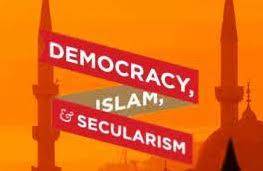
Date: Thursday 7 December 2017
Location: Common Ground, Institute of Advanced Studies, South Wing, Wilkins Building, UCL
Time: 6pm to 8pm
Possibly the most important Muslim thinker of the 20th century, the Indian poet and philosopher Mohammad Iqbal continues to exercise a significant influence globally. Like many anti-colonial thinkers, he was a critic of the West, but in a productive way that learnt from both its successes and failures. An important part of Iqbal's criticism had to do with the idea of secularism and in particular the separation of church and state. Rather than simply rejecting such distinctions, Iqbal subjected them to examination and proposed ways of ensuring that politics remained a site of freedom distinct from religion.
Speaker: Faisal Devji, Reader in Indian History & Fellow of St Antony's College, University of Oxford. Respondent: Hugh N. Kennedy, Professor of Arabic at the School of Oriental and African Studies.
Muslim Responses to Westernization: Non-Islamic Societies panel discussion

date: Friday 8 December 2017
location: Common Ground, Institute of Advanced Studies, South Wing, Wilkins Building, UCL
time: 5pm to 7pm
- Claire Dwyer (Migration Research Unit, Geography, UCL) on how issues of 'integration' are contested and constructed by British Muslims drawing on research on state-funded Muslim schools and university Islamic Societies.
- Myriam Hunter-Henin (Faculty of Laws, UCL) on recent debates over how the Fundamentally British Values discourse shapes Muslim identities.
- Alison Scott-Baumann (Dept. of Religions & Philosophies, School of Oriental and African Studies) on impacts of the 'free speech' debate for Muslims on campus and related positionality issues for the non-Muslim researcher (Professor of Society and Belief, Dept. of Religions and Philosophies, SOAS).
- Respondent Faisal Devji (Reader in Indian History & Fellow of St Antony's College, University of Oxford).
Narrative of Desire: The Politics of Exhibiting Culture and Displaying African Art
Lecture by Babaro Martinez-Ruiz
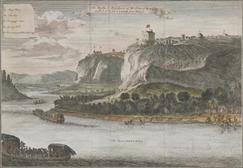
Date: 23 November 2017
Time: 6-8pm
location: Common Ground, Institute of Advanced Studies, South Wing, Wilkins Building, UCL
This lecture will touch upon some of the issues discussed by George Marcus as symptomatic of new approaches in anthropology. It will explore his suggestion that the off-stage green room is an apt metaphor for the increased dialogue across disciplines, particularly between anthropology and African art history, in that it symbolizes a XXI century experience of globalization that focuses on site-specific performance art and ethnographic encounters. The lecture will cover a global debate over Western representations of African and African diaspora art with special attention to issues such as the manner of in which aesthetic concepts, museum politics, art display, colonialism, identity practices and nationalism intersect across a global diaspora. It will explore questions of representation of contemporary African art and its proliferation in art collections of major institutions around the world and will query the dichotomy between viewing 'African' artistic practices in the diaspora as either influenced by cultures of the West (modern) or as non-Western cultures equated with primitivism (traditional).
Bárbaro Martinez-Ruiz is the Head of Department for the Department of Art History & Discourse of Art at the University of Cape Town. He is also a Leverhulme Visiting Professor, African Studies Centre, University of Oxford and Senior Fellow at St. Anthony's College.
African Perspectives on Empathy, Reparative Humanism and Recognition: Decolonizing the Discourse on Victim / Perpetrator Dynamics
Lecture by Pumla Gobodo-Madikizela
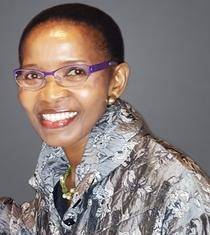
Date: 13 November 2017
Time: 6-8pm
location: Common Ground, Institute of Advanced Studies, South Wing, Wilkins Building, UCL
We are pleased to welcome Pumla Gobodo-Madikizela (Professor and Research Chair in Historical Trauma, Stellenbosch University) for this CREDOC lecture in which she will broaden the horizon of understanding of the dynamics of empathy in victim-perpetrator encounters by engaging a perspective that makes transparent the interconnected relationship among empathy, Ubuntu and the embodied African phenomenon of inimba-a Xhosa word that loosely translated means "umbilical cord." She will integrate these concepts with the relational and psychoanalytic theory of intersubjectivity. The goal is to find a richer, deeper and multi-layered understanding of the mutual reciprocity of empathy that takes into account an African knowledge archive.
Abstract: In the lecture, I will broaden the horizon of understanding of the dynamics of empathy in victim-perpetrator encounters by engaging a perspective that makes transparent the interconnected relationship among empathy, Ubuntu and the embodied African phenomenon of inimba-a Xhosa word that loosely translated means "umbilical cord." I will integrate these concepts with the relational and psychoanalytic theory of intersubjectivity. The goal is to find a richer, deeper and multi-layered understanding of the mutual reciprocity of empathy that takes into account an African knowledge archive. Ubuntu is based on the cultural orientation of recognition of others-of always engaged with and reflecting, consciously and unconsciously, on the subject's interaction with a wider network of others, including internal others. Illustrative examples will show how inimba opens up the possibility of new subjectivities that transcend intersubjective ("two-person") contribution of the two people encountering each other. Locating the essence of ethical responsibility towards others in the heart of the body, as symbolized by the embodied phenomenon of inimba, the subject is called to respond to the traumatic disruption of the past not with the moral force of righteous aggression, but with the moral force of love. In this sense then, inimba points toward understanding the body as a site for reparative humanism, a site for forging human links across time and space with the Other-even an Other responsible for one's irreparable loss.
Pumla Gobodo-Madikizela is Professor and Research Chair in Historical Trauma and Transformation at Stellenbosch University, South Africa. She has been Professor in the Psychology Department at the University of Cape Town, and Senior Research Professor at the University of the Free State leading the research initiative in Trauma, Memory and Forgiveness.
Her research interest grew out of her work on the Truth and Reconciliation Commission of South Africa, focusing mainly on two strands of research. The first is exploring ways in which the impact of the dehumanising experiences of oppression and violent abuse continues to play out in the next generation in the aftermath of historical trauma. For her second research area, she expands her earlier work on remorse and forgiveness and probes the role of empathy more deeply by engaging a perspective that makes transparent the interconnected relationship among empathy, Ubuntu and the embodied African phenomenon of inimba-a Xhosa word that loosely translated means "umbilical cord"-and integrating these with the relational and psychoanalytic concept of intersubjectivity. The goal is to find a richer, deeper and more complex understanding of empathy that takes into account an African knowledge archive.
Gobodo-Madikizela's critically acclaimed book, A Human Being Died that Night: A South African Story of Forgiveness won the Christopher Award in the United States in 2003, and the Alan Paton Award in South Africa in 2004. The book has been published seven times, including translations in Dutch, German, Italian and Korean. Her other books include Narrating our Healing: Perspectives on Healing Trauma, as co-author, Memory, Narrative and Forgiveness: Perspectives on the Unfinished Journeys of the Past, as co-editor, Breaking Intergenerational Cycles of Repetition: A Global Dialogue on Historical Trauma and Memory, as editor, and What Does It Mean to Be Human in the Aftermath of Historical Trauma? Re-Envisioning the Sunflower and Why Hannah Arendt Was Wrong (Claude Ake Memorial Papers, Uppsala University). Her current book project is a monograph (as editor) that focuses on a close analysis of dialogue between adult children of Nazi perpetrators and descendants of Holocaust survivors. The monograph derives from her ongoing collaboration that she has been leading with German and Jewish-German psychotherapists and psychiatrist based in Cologne and Düsseldorf.
Civilisations and their Mobilisation Today: Western Civilisation: Western Civilisation panel discussion
Date: Tuesday 6 June 2017
Time: 6.30-8.30pm
Location: Enlightenment Gallery, British Museum
Speakers include: Jonathan Bell (Institute of the Americas, UCL), Christopher Brooke (Politics & International Studies, Cambridge), Faisal Devji (Modern South Asian History, Oxford), and Jan Kubik (School of Slavonic and Eastern European Studies, UCL).
Chairs: Uta Staiger (European Institute, UCL) and Maria Wyke (Greek & Latin, UCL)
'Can the West survive?' This was the apocalyptic title of a panel discussion among senior European and American government figures at the Munich security conference in February 2017. Anxiety over the political break up of 'the West' is matched by anxiety over the loss of its perceived values. They are being replaced (said senator John McCain) by blood, race, and sectarianism. After 9/11, 'the clash of civilisations' reemerged as a highly problematic catchphrase of popular political debate in order to suggest that the globe's primary source of conflict is between cultural and religious identities, Christianity and Islam. Since the vote to withdraw from the European Union and the election of President Trump, such polemical headlines in newspapers and social media have been replaced by declarations that Western Civilisation is now endangered and facing imminent destruction.
Civilisations are emerging again on the map of modern debate, where 'civilisation' is used to describe a phenomenon greater than the nation, one identified by materials, languages, arts, institutions and habits of mind and body that are spread over time and territory yet remain linked to one another as an integrated system. Why does such a category have renewed value despite its compromised usages in the past? And how is it being utilized in regions such as China, Africa, Europe, the Middle East or the Americas to challenge and to remap social and political geographies? CREDOC (the Centre for Research on the Dynamics of Civilisation, www.ucl.ac.uk/civilisation) is running a series of workshops during 2017 on Civilisations and their Mobilisation Today with a view to creating a network of researchers and furthering research projects on this theme. The first workshop on Chinese civilization focused on the claim of the Chinese government to be the legitimate representative of a civilisation and to continue its long heritage.
This second workshop proposes to interrogate the contemporary mobilization of 'Western Civilisation' through an historical, sociological and comparative perspective. The workshop will reflect upon the emergence of the concept of 'Western civilisation' in the Enlightenment, and the then presumption that Western values consist in rationality, secularity, egalitarianism and liberal democracy. It will ask who now stakes a claim to the West, and to Western civilization, and to what end? And, in order to understand better how the West is being reconceived as a civilization on the brink of collapse, it will compare the reemergence of civilization in other regions as a mode of political and cultural affirmation.
The event is free and open to all but a ticket is required for entry into the British Museum.
Civilisations and their Mobilisation Today:Workshop on Civilisation in China
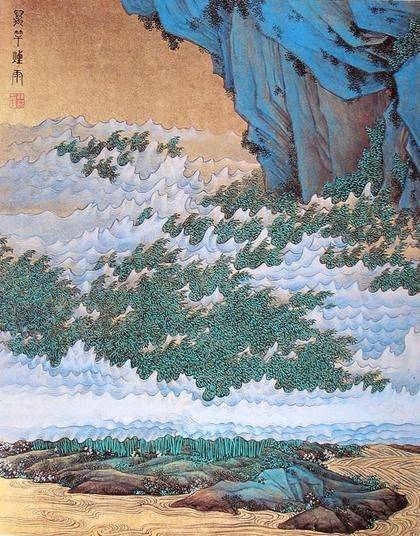
Date: 24 March 2017
Time: 2-5.30 p.m.
Location: Common Ground, at the Institute of Advanced Studies, South Wing, Wilkins Building, University College London.
Tea and coffee will be provided
Civilisations are emerging again on the map of modern debate, where 'civilisation' is used to describe a phenomenon greater than the nation, one identified by materials, languages, arts, institutions and habits of mind and body that are spread over time and territory yet remain linked to one another as an integrated system. Why does such a category have renewed value despite its compromised usages in the past? And how is it being utilized in regions such as China, Africa, Europe, the Middle East or the Americas to challenge and to remap social and political geographies? CREDOC (the Centre for Research on the Dynamics of Civilisation) is running a series of workshops during 2017 on Civilisations and their Mobilisation Today with a view to creating a network of researchers on this theme and furthering their research projects.
The focus for this first workshop is the claim of the Chinese government to be the legitimate representative of a civilization and to continue its long heritage. What does the government and its various agencies, including schools, actually promote as Chinese civilisation? What do other modes of transmission (including renewed ritual traditions or cultural heritage projects) conserve? Are they ruptures from what was previously characterisable as civilisation in China or continuities? An afternoon of discussion of these issues will be prompted by introductory remarks by Wang Mingming (Peking), Stephan Feuchtwang (LSE) and Michael Rowlands (UCL).
All are welcome to attend and/or to suggest speakers and themes for further workshops on Civilisations and their Mobilisation Today. Any inquiries to the directors of CREDOC, Mike Rowlands (m.rowland@ucl.ac.uk) and Maria Wyke (m.wyke@ucl.ac.uk).
"The First European: A History of Alexander in the Age of Empire": A seminar with Pierre Briant (Collège de France)
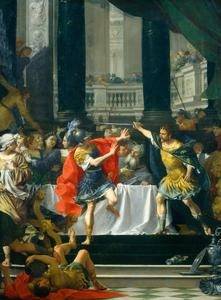
Respondents: Richard Bourke (Queen Mary, University of London) and Sanja Perovic (King's College London)
Wednesday, 1st March, 2017
Time: 5-7 p. m.
Location: Haldane Room, Wilkins Building, University College London
The occasion of this event is the publication in English of Pierre Briant's book, Alexandre des Lumières: Fragments d'histoire européene (Paris, 2012).
All are welcome. The event is free, and no registration is required.
The exploits of Alexander the Great were so remarkable that for centuries after his death the Macedonian ruler seemed a figure more of legend than of history. Thinkers of the European Enlightenment, searching for ancient models to understand contemporary affairs, were the first to critically interpret Alexander's achievements. As Pierre Briant shows, in the minds of eighteenth-century intellectuals and philosophes, Alexander was the first European: a successful creator of empire who opened the door to new sources of trade and scientific knowledge, and an enlightened leader who brought the fruits of Western civilization to an oppressed and backward "Orient."
In France, Scotland, England, and Germany, Alexander the Great became an important point of reference in discourses from philosophy and history to political economy and geography. Voltaire, Montesquieu, and Robertson asked what lessons Alexander's empire-building had to teach modern Europeans. They saw the ancient Macedonian as the embodiment of the rational and benevolent Western ruler, a historical model to be emulated as Western powers accelerated their colonial expansion into Asia, India, and the Middle East.
For a Europe that had to contend with the formidable Ottoman Empire, Alexander provided an important precedent as the conqueror who had brought great tyrants of the "Orient" to heel. As The First European makes clear, in the minds of Europe's leading thinkers, Alexander was not an aggressive militarist but a civilizing force whose conquests revitalized Asian lands that had lain stagnant for centuries under the lash of despotic rulers.
Image: Donato Creti, 'Alexander Threatened by His Father' (Courtesy National Gallery of Art, Washington, D.C.)
Could Modern Civilization Collapse?: A multidisciplinary approach from Archaeology, Climatology and History on Climate Change and the possible Collapse of Civilization
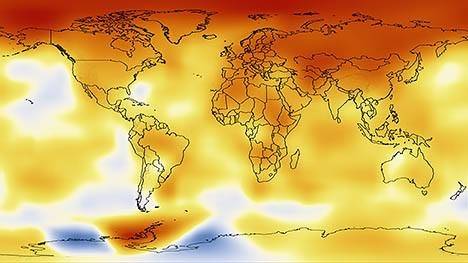
Date: 19 and 20 December 2016
Location: Institute of Archaeology G6 (route).
Organiser: Miguel Fuentes
There are still spaces available to present, so if you are interested please contact Miguel Fuentes.
The dynamic of the collapse of civilizations has been widely treated by historical and social sciences during the XIX and XX century in several fields like Archaeology, History and Art. It has also been a common theme in popular culture and mass media for decades. Some of the most common discussions in this subject have been, for example, the fall of the Roman Empire, the destruction of American civilizations, the crisis of ancient Rapanui society, etc.
Furthermore, the perspective of collapse has been a regular part of intellectual and artistic discussions in Western civilization: for instance, in the case of the outbreak of the First World War and the statement made by the Polish thinker Rosa Luxemburg: "Socialism or Barbarism". Another example is the social, cultural and artistic "paranoia" that surrounded the nuclear arms race between USA and the USSR during the second half of the last century. In some ways, it can be said that the notion of collapse has been an important part of the intellectual and artistic inquiry and self-representation of Western society until today, playing also a crucial role in shaping some of the most important aspects of the contemporary world like science, art, literature and mass media.
This conference will try to figure out how the notion of climate change has increasingly replaced previous "discourses of collapse", for example the danger of nuclear war during the Cold War. This will be achieved by carrying out an evaluation of the "discursive structures" of this concept from several perspectives: Archaeology, Climatology and History. One of the main goals will be to assess the ways in which the concepts of climate change and collapse have been culturally and historically mixed in recent times, seeking to discuss some of the main features and tensions of the particular notions of civilization that underlie this process.
The first part of this conference will consist of a discussion on the concept of climate change and collapse from a scientific and archaeological perspective, aiming to answer the question: Could modern civilization collapse? The main goal will be to evaluate the magnitude and rhythm of current climate change and the scale and main characteristics and tendencies of it in comparison with previous events of climatic transformations that occurred in the geological past, this last taking also into consideration the possible impacts of these processes on human civilization today.
We will also discuss several scenarios of climate change during this century and its possible impacts on human society and civilization, attempting to establish some linkages between the current climatic situation and some cases of climate change in the archaeological past. Potentialities and limits of social and technological resilience of human societies will be discussed. Relevant cultural questions will be considered such as: what could be the importance of ecological factors on the development of human society during the current century? How can we compare the role of climate change on societies in the archaeological past with current situation? How can we measure the possible impacts of climate change in the future?
Taking into consideration the possibility of collapse of modern civilization from an archaeological and climatic perspective, our conference will seek to challenge the traditional decimononic notion of civilization that characterize the Western world, with its supposed properties of socio-political and techno-economic superiority and stability.
This last will be done by discussing, from a historical and cultural perspective, the possible connection between the current situation and different past scenarios where social crisis led sometimes not only to the destruction of previous social systems, but also to an important reconfiguration of societies and artistic expressions: for example, in the case of the collapse of the Roman Empire and its consequent reconfiguration into the European Middle Ages Societies. The objective here is to understand how climate change and the current ecological crisis could lead in the present to important transformations of the current social system and culture.
Finally, this conference will count with presentations of some social and political leaders and activists on public issues related to climate change, with the aim to engage scientific discussion with a more public debate.
Organizers
PhD Student. Institute of Archaeology
Senior Teaching Fellow Astrophysics Group (UCL)
Grupo de Seguimiento de la Crisis Climatica Mundial
https://www.facebook.com/seguimientocrisisclimatica
This 3-4 days Conference will be carried on December 2016. It will consider a digital publication (conference proceedings). Speakers of the conference will include world leading climatologists, biologists, archaeologists and historians.
Sponsorship
UCL Centre for Research on the Dynamics of Civilization
Institute of Archaeology (UCL)
Previous conferences and audio-visual materials produced by Miguel Fuentes:
1-Peter Wadhams Interview: Could Modern Civilization Collapse? (Nov 2015)
Institute of Archaeology - UCL
2- Peter Wadhams Interview: Could Modern Civilization Collapse? (Nov 2015)
Institute of Archaeology - UCL
For more information about this conference contact Miguel Fuentes
Institute of Archaeology Climate Change conference
Grupo de Seguimiento de la Crisis Climática Mundial
https://www.facebook.com/seguimientocrisisclimatica
[1] Peter Wadhams is Professor of Ocean Physics and Head of the Polar Ocean Physics Group in the Department of Applied Mathematics and Theoretical Physics of the University of Cambridge.
Rousseau between Antiquity, Enlightenment and Modernity
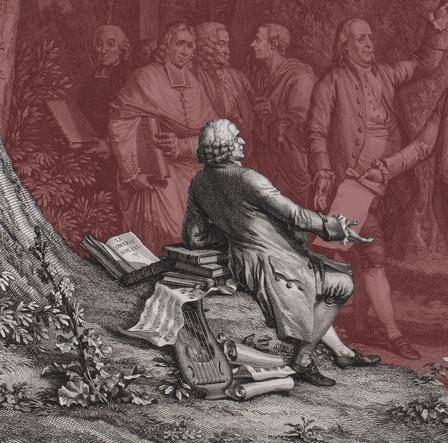
Date: Friday 2 December 2016
Time: 5 p.m. onwards
Location: Chadwick G07
Speakers:
· Prof. Céline Spector (Paris IV - Sorbonne)
· Prof. John Robertson (Cambridge)
Jean-Jacques Rousseau is widely recognised as one of the first critics of modern civilisation and its discontents: the pursuit of self-interest, the division of labour, lack of authenticity, and political structures founded on greed and exploitation. However, recent research has opened up a variety of new perspectives on Rousseau that do not necessarily fit the traditional picture. This event is aimed at a reassessment of such recent views of Rousseau and their relationship with wider trends in Enlightenment studies. It will be based on a discussion of two new publications: the volume Engaging with Rousseau: Reaction and Interpretation from the Eighteenth Century to the Present (Cambridge University Press, 2016); and 'Rousseau's Imagined Antiquity', a special issue of the journal History of Political Thought (2016), both edited by Avi Lifschitz (UCL History).
All welcome; the discussion will be followed by a reception.
Please register on Eventbrite.
Sponsorship:
Organised and sponsored by CREDOC, the UCL Centre for Research into the Dynamics of Civilisation
Food, Drink and Civilization: International Conference to be held at UCL on 21-23 September 2016
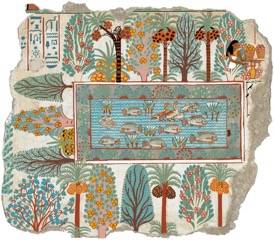
Visit our YouTube page to view videos from the conference.
Eating and drinking are frequently described as 'habits' or forms of etiquette indicating a sense of what it means to be civilised or uncivilised. The preparation and serving of food and drink figure prominently in Norbert Elias's understanding of civilisation as a process. Archaeologists have focused on the origins of food production and domestication. Anthropologists since Frazer's Golden Bough have focused on cooking, cuisine, feasting and sacrifice as a key to cultural comparison. Scholars in different disciplines have explored notions of commensality, position, inclusion and exclusion as markers of status and individual and collective (self-)identity. The conference will adopt a cross-cultural, inclusive and multi-disciplinary perspective, drawing in scholars from sociology, anthropology, history, theatre, philosophy, literature and art, in order to enhance our understanding of the ways in which human engagement with food and drink, in terms of production and consumption, use and abuse, aesthetics and ethics, rhetoric and politics, shape their sense of self and other, and order and define their world. In exploring points of convergence and divergence across different times and cultures it will raise questions about what we mean by civilisation and whether there can ever be a single core model.
Location: Archaeology G6 Lecture Theatre
View the programme.
Click here to book.
Contact: Tzu-I Liao
Confirmed speakers
Dr Andrew Dalby, historian and Trustee of the Oxford Food Symposium
Dr Paul Buell, Adjunct Professor, Center for Eastasian Studies, Western Washington University; Research Scholar, Horst-Görz-Institut, Charité Berlin
Dr Esther Eidinow, University of Nottingham
Prof Marylin Nicoud, Université d'Avignon et des Pays de Vaucluse
Professor Roel Sterckx, University of Cambridge
Christopher Tuplin, University of Liverpool
Dr Susan Weingarten, Visiting Scholar, Oxford Centre for Hebrew and Jewish Studies
Professor Sami Zubaida, University of London Birkbeck
Organizers
Kaori O'Connor
Chris Carey
Image: From the tomb of Nebamun, courtesy of the Trustees of the British Museum.
Civilisation in Time & Space: The City in the Early Islamic World
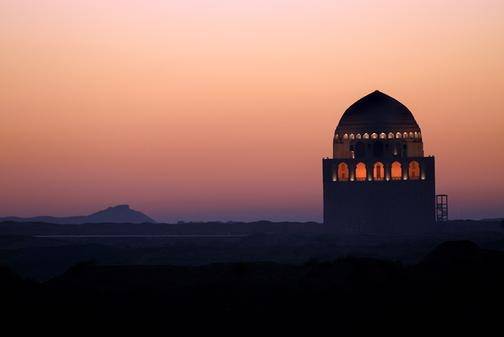
Date: 1 and 2 July 2016
Location: IAS Common Ground Space, University College London
Organisers: Tim Williams
A workshop exploring the development of the city in the early Islamic world and the extent to which it was shaped by the development of Islamic society will be held at UCL on 1 & 2 July.
Using the perspective of the longue durée, the workshop will explore the impact of religious and secular administration, and cultural traditions, on urban planning. Themes will focus on concepts of urban space, of how people sought to control, shape, share and use space, as arenas of distinct and overlapping experiences.
This debate is framed over the latter half of the first millennium and early second millennium CE: a period that encompasses Late Antiquity, the rapidly expanding Islamic world, and its subsequent fractious division into multiple polities, all set within the context of interactions with empire systems beyond its boundaries. In doing so, the workshop seeks to re-establish a civilisational scale for the analysis of Islamic urbanism.
Register here.
View the programme and abstracts here.
Baltic-Nordic Regionalism: CREDOC supported event to be held on 10 June 2016
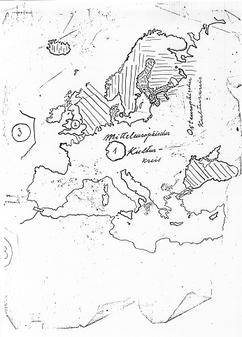
On June 10, 2016, an international research seminar titled Baltic-Nordic Regionalism: A History of Regional Cooperation and Reconfiguration will take place at Institute of Advanced Studies, UCL.
During the 20th century, the regional concept of Norden - signifying the Scandinavian countries including Finland, but traditionally excluding the Baltic countries - acquired a meaning beyond the merely geographical, as a political and historical entity in and by itself. As such, it has also become to denote specific ways of organizing society and certain forms of lifestyle which have recently been appropriated by both Baltic and Nordic governments as a possible supranational brand for promoting a new Baltic-Nordic 'regionness' as well as emphasising global competitiveness of the Baltic Sea Region in view of growing geopolitical tensions and economic recession.
However, it is rarely self-evident what it means to be 'Nordic'. The region's borders to the Baltic or the Arctic have been fluid and remain under negotiation even today. Similarly, the identity discourse about 'Nordicness' is still characterised by uncertainty over whether Norden is as an open and - in this sense - civilizational idea, or a culturally and geographically limited one.
The aim of our network is to investigate previously understudied or ignored competing geographical and regional ideas, identities, and projects which have in various ways challenged or presented alternatives to the presently 'natural' Nordic identity. The seminar is meant to showcase research in progress and to facilitate further network-building around this and other related topics.
The presenters will include Dr Carl Marklund (Södertörn University) speaking on 'The Baltic-Nordic Region as a Testing Ground for Competing Identities, Interests and Strategies' and Dr Pärtel Piirimäe (University of Tartu) on changes in the meaning of 'Baltic' at the transformative moments in history. More specific case studies will be presented by Dr Marta Grzechnik (University of Gdańsk/University of Greifswald), who will comment on Poland's complicated relationship with Baltic-Nordic regionalism in the 20th century, Dr Ainur Elmgren (University of Helsinki), looking into the rise and fall of the notion of 'Baltoscandia' in the 1930's Finnish radical Tulenkantajat group, and Dr Kaarel Piirimäe (Estonian War Museum/University of Tartu) on regionalist ideas at the beginning of Estonian diplomacy in 1988-1991.
Everyone interested is welcome to attend the seminar for free by registering at Eventbrite. We also have space in the schedule for a few more interested scholars from UCL (including PhD students) with similar research interests. They are hereby invited to propose their own 20-minute papers at the email address below by 20 May, 2016.
The venue of the seminar is in the Common Ground of the Institute of Advanced Studies in the South Wing (on the south side of UCL's main quad). The seminar is organised by the departments of Scandinavian Studies and European and Social Studies at UCL. It is supported by grants from Institute of Advanced Studies (http://www.ucl.ac.uk/institute-of-advanced-studies), and CREDOC - Centre for Research into Dynamics of Civilization (www.ucl.ac.uk/research_frontiers/civilisation), UCL.
For more information, please contact Dr Mart Kuldkepp.
- When
- Friday, 10 June 2016 from 09:30 to 17:00 (BST) - Add to Calendar
- Where
- University College London - Gower Street, London, WC1E 6BT - View Map
The Clash of Civilisations and of Ignorance
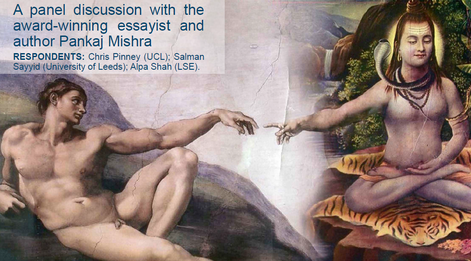
Date and time: Friday 27 May 2016 from 6-8 p.m.
Location: Cruciform B404 Lecture Theatre 2
followed by a drinks reception in the Cruciform Seminar Room 1 from 8-8.45 p.m.
This panel is an ambitious and timely attempt to reformulate a challenge to the popular thesis that we have entered an era of clashing civilisations, in which the globe's primary source of conflict is between cultural and religious identities. The 'Clash' of our title refers to the thesis that was first formulated by Samuel Huntington some twenty years ago and has reemerged very recently as a favoured catchphrase of popular political debate. 'Ignorance' invokes Edward Said's rejoinder that such a thesis is dangerously oblivious to different humanisms that have not been the exclusive property of Western liberalism. The renewed use of 'the clash of civilisations' is built upon a fantasy of return to nineteenth-century certainties about the value of Western universalism and to a belief in the civilising effects of a Western imperium. But, as our keynote speaker Pankaj Mishra will suggest, 'The thin sound of cracking is heard from many more parts of the world as exhausted authority surrenders to nihilism'.
No registration required. All welcome!
Transcript of Pankaj Mishra's talk
What is Latin about Latin America? Elite Culture, History, and the Making of a Continental Identity: A Public Symposium
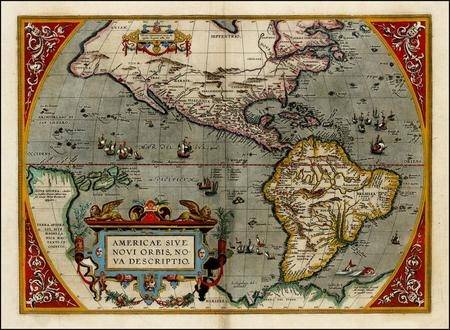
Date: Saturday 21 May 2016
Location: IAS Common Ground Space, Wilking Building, South Wing
Why are the diverse modern nations created from the overthrow of Iberian rule in the Americas known as "Latin" America? Historians of Europe argue that the French coined the term to justify neo-imperialist interventions, most notably their notorious installation of a Habsburg Emperor, Maximilian, in Mexico during the 1860s. Historians of Latin America have countered that it was invented earlier by Spanish American intellectuals, as a rallying point for unity against the emerging threat of "Anglo-America". Some postcolonial scholars have argued that it was deployed by ruling creoles specifically to marginalise other sectors of the population. There are also contemporary debates about whether Brazil is or is not part of Latin America. In all of this discussion, little attention has been paid to the multiple references to the European classical world that appear in the art, architecture, literature, history, politics and public spaces of the Iberian Americas. There is also a long history of scholarship by both indigenous and creole intellectuals situating the history of the region within a comparative framework based on the European classical civilisations. This symposium is an opportunity to explore the significance of European classical antiquity in the history and culture of the Americas, and to debate what it might mean for our understanding of the idea of civilization. There will be two parts to the afternoon. The first panel, The Invention of Latin America, will focus on ways the first modern Republics found non-colonial analogues and precedents in re-imaginings of European classical antiquity. The second, Latin America as magna patria, will explore the early twentieth-century emergence of a regional collective identity alongside the consolidation of national identities. For a list of speakers and full details of the programme, please see our website: https://latinlatinamerica.wordpress.com
To register for this free event, please visit: http://bit.ly/1T215zq
Should you have any questions, please contact the organisers: Rosa Andújar, (r.andujar@ucl.ac.uk), Andrew Laird (Andrew.Laird@warwick.ac.uk), and Nicola Miller (nicola.miller@ucl.ac.uk)
The organisers are grateful to the UCL Centre for Research on the Dynamics of Civilisation (CREDOC) and the UCL Institute for Advanced Studies for their generous support.
Enlightenment Views of Near Eastern Civilisations
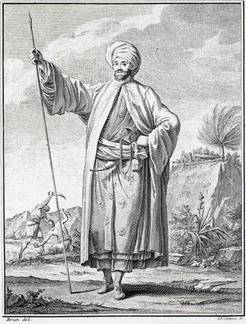
Date: Friday 6 May 2016
Time: 10.30 a.m. - 1 p.m.
Location: IAS Common Ground Space, Wilking Building, South Wing
Location on map: here
Could the acknowledged beauty of Koranic poetry serve as evidence of its divine origin? What is the relationship between ancient sources on Near Eastern civilisations and contemporary Muslims and Jews? How did the rise of the Islamic Caliphate influence the Roman and Byzantine empires? These were only some of the questions at the centre of eighteenth-century inquiries into the cultures of the Near East. They will be discussed at this interdisciplinary workshop, examining the selective yet diverse perspectives through which Enlightenment authors viewed the area and its inhabitants.
Speakers:
Jan Loop (University of Kent/Warburg)
Charlotte Roberts (UCL English)
Avi Lifschitz (UCL History)
Opening comments:
Maria Wyke (UCL Greek and Latin)
Mike Rowlands (UCL Anthropology)
War in the Ancient World: Economics and Warfare: CREDOC supported event to be held on 27-29 April 2016
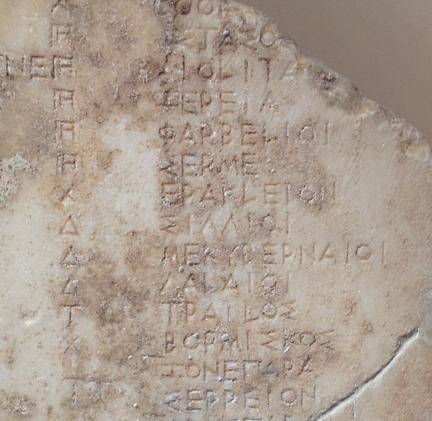
Date: 27-29 April 2016
Location: University College London (Rooms TBD)
Organisers: Manuela Dal Borgo, Roel Konijnendijk, Chris Carey, Hans van Wees
The ancient world, from the Pillars of Herakles to the Near East, was fraught with conflict both civic and international. The wealth of empires and communities waxed and waned by the hand of war; it was through war that economic strategies came into their own, as communities learned to manage finances and allocate resources to increase their military effectiveness.
This conference seeks to consolidate the growing research on the role of economics in the study of ancient warfare by looking at the impact of war on the ancient economy and the impact of economics on ancient war. It will offer a platform for the discussion of such themes as the increase of state control over money and resources, changes in supply and demand of military manpower, equipment, and raw materials, the effect of war on trade, and the relative economic efficiency of armies and of coalitions. The aim is to bring together the insights of two disparate fields - to study themes of economics and warfare across the ages and cultures of the ancient world, defining areas of continuity and change.
This is a conference for economic historians who recognise warfare as a test case and pool of evidence, and for military historians who are conscious of the importance of economic factors in shaping ancient realities of war.
This conference is made possible by the generous support of the UCL Departments of History and Greek & Latin; the AG Leventis Foundation; the Institute of Classical Studies; the Institute of Historical Research; the UCL Joint Faculty Institute of Graduate Studies (JFIGS); the UCL Centre for Research into the Dynamics of Civilisation (CREDOC); and the Society for the Promotion of Roman Studies.
A Cocktail of Civilisational Motives: Reflections on History, Politics and Social Marginalisation in the Boko Haram Insurgence in Nigeria
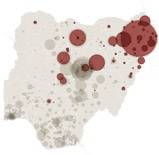
Thursday 26 November 2015
Daryll Ford Senior Common Room, UCL Anthropology
14 Taviton Street, London WC1H OBW
4.30-6.30 p.m. followed by a reception in the Anthropology Common Room, ground floor.
Speaker: Edlyne E. Anugwom
Chair: Murray Last (UCL Anthropology)
(Department of Sociology/Anthropology, University of Nigeria, Nsukka)
Contrary to widespread narratives, the Boko Haram episode remains a complex reading of the modern socio-political history of Nigeria. While the Boko Haram has its unique characteristics, it is nonetheless one more episode in a long history of the utilisation of Islamic fundamentalism in the pursuance of socio-political goals in the country. However, the Boko Haram should be seen as straddling attempts to rewrite the civilisational history of Islam in Nigeria, discontent with the political situation, and a reflection and product of severe social marginalization seen largely as produced by the Nigerian state and its political elites. Therefore, the Boko Haram should not be treated wholly as a terrorist organisation but also as a rude awakening of the Nigeria state to the consequences of systematic social marginalization, disempowerment of citizens, and the increasing lacuna between the rulers and the ruled. Hence, the resolve to deal with the undoubted terror of the Boko Haram should be matched with a desire to provide answers and solutions to some of the salient issues raised by the episode in the contemporary socio-political life of Nigeria. This would not only address the immediate need to deal with the Boko Haram insurgence but also nip other such future uprisings in the bud.
AFRICAN CIVILIZATIONS: Kongo Art and the Rethinking of Civilisation
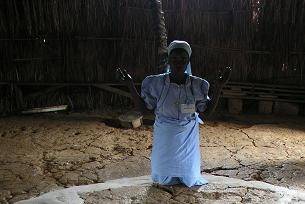
Thursday 5 November 2015
6-7.30 p.m. followed by a reception in Gordon House 106 from 7.45-8.30 p.m.
No registration required. All welcome.
Location: Gordon Street (25) E28 Harrie Massey Lecture Theatre
Barbaro Martinez-Ruiz (Michaelis School of Fine Art, University of Capetown)
The lecture will focus on agency in Kongo society, exploring a complex state of social development in which legal, political, religious and visual systems motivate responses to and interpretations of Kongo cultural principles in the Atlantic world. Martinez-Ruiz will argue that the myriad forms of communication known as Ndinga i Sinsu seamlessly integrate into a wide range of audio and visual communicative techniques that he terms 'graphic writing systems'. Such systems also include proverbs, mambos, syncopated rhythms, a large variety of written symbols, and oral traditions that are rich sources of cultural and social histories, religious beliefs, myths, and other expressions of the shared Bakongo worldview. The lecture will incorporate key examples gathered through fieldwork among the Kongo people in northern Angola, southern Democratic Republic of the Congo and within Kongo-based religious traditions in the Americas.
Barbaro Martinez-Ruiz is an art historian with research interests in African and Caribbean artistic, visual, and religious practices. He took up a post in the Michaelis School of Fine Art (University of Cape Town) in 2014, after posts in Havana's High Institute of Art, the Rhode Island School of Design, and Stanford University's Department of Art and Art History. His books include Kongo Graphic Writing and Other Narratives of the Sign (2013), Faisal Abdu'Allah: On the Art of Dislocation (2012) and co-authored Art and Emancipation in Jamaica: Isaac Mendes Belisario and his Worlds (2007), the latter of which was awarded the Alfred H. Barr Prize by the College Art Association. He has also curated exhibitions on African art and presented his own multimedia work in the United States.
Deep Pasts, Deep Cultures: Mande, Yoruba and Kongo
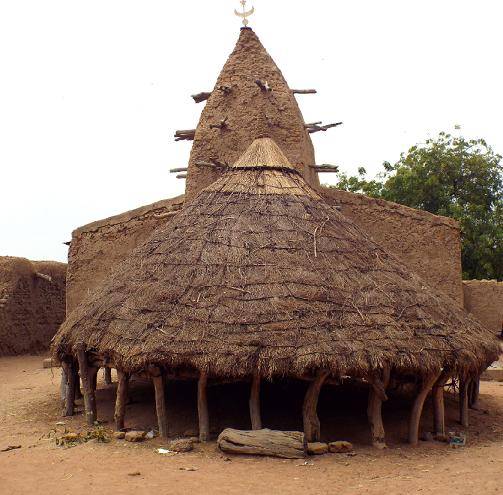
Friday 6 November
9.15 a.m. - 6 p.m.
No registration required. All welcome.
Location: Grand Challenges Common Ground space: Room G11, South Wing, Wilkins Building
Symposium Convenor: Kevin MacDonald (UCL African Studies/ Institute of Archaeology)
Discussants: Barbaro Martinez-Ruiz (Capetown), Michael Rowlands (UCL)
Speakers: Akin Ogundiran (North Carolina), Karin Barber (Birmingham), John Picton (SOAS), Jan Jansen (Leiden), Ramon Sarro (Oxford), Wyatt MacGaffey (Haverford), Koen Bostoen (Ghent), Cecile Fromont (Chicago)
Over the past two millennia African civilizations, with unique political traditions, artistic corpora, musical styles and oral literatures have grown and flourished along the valleys of the Niger, the Congo River basin and elsewhere in the Sub-Sahara. Often placed to one side by Afrocentrists in favour of Egypt/Kemet, or dismissed as insignificant by the criteria of Eurocentrists, these Deep Cultures have played a profound role in forming the basis of long-lived and enduring African civilizations. A challenge for African Studies today is both to capture the uniqueness of these civilizations and to disentangle the multiple traditions, ideas and histories which have shaped them. Ultimately, a plurality of understandings must come together to comprehend their idealised worlds and their continuing work in making the continent a better place. In this symposium we invite scholars to explore the historical depth configuring the Mande, Yoruba and Kongo civilizations: in the past and the present.
Symposium Timetable
0915
Welcome (Professor Mike Rowlands)
0925
Introduction to the Symposium (Professor Kevin MacDonald)
0930 - 1200
1st Session: Deep Time Traditions of Civilization: Mande and Kongo
· Kevin MacDonald (UCL) The Mande Political Tradition: Identity, Castes and Political Forms
· Jan Jansen (Leiden) From Termite Hill to Empire - "Deep Mande" Notions of Cosmology and Power
· Wyatt McGaffey (Haverford) Deep political structure: Central Africa and beyond
· Koen Bostoen (Ghent) Kongo - Decentering Kongo History: Recent Archaeological and Linguistic Insights from the Lower Congo Province of the Congo
1200 - 1300
Lunch
1300 - 1430
2nd Session: Deep Time Traditions of Civilization: Yoruba
· Akin Ogundiran (North Carolina) - The Yoruba Path: Knowledge Capital, Regional Integration, and the Birth of a Community of Practice, ca. 800-1400 AD.
· John Picton (SOAS) - When was Yoruba Art?
1430-1530
Coffee
Film by Marc Coulibaly
1530-1730
3rd Session: African Civilization and Memory
· Cecile Fromont (Chicago) - Common Threads: Cloth and Color between Past and Present in Early Modern Kongo and Angola
· Karin Barber (Birmingham) - The Vitality of the Past in Yoruba Praise Poetry
· Ramon Sarro (Oxford) - How to dig in an ancestral forest: The cultural work of Kongo prophets
1730-1800
Response by Barbaro Martinez-Ruiz
Conference: Europe from the Outside in? Imagining Civilization through Collecting the Exotic
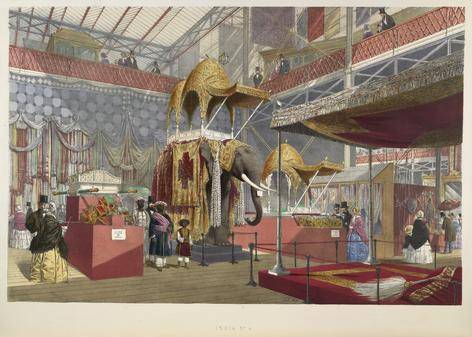
Wednesday 21 and Thursday 22 October 2015
9.15 a.m. - 6 p.m., followed by drinks reception on Thursday 22nd
No registration required. All welcome.
Location: UCL Institute of Advanced Studies, Common Ground, South Wing, Wilkins Building
Organisers: Pieter ter Keurs (Leiden), Peter Pels (Leiden), Michael Rowlands (UCL), Oscar Salemink (Copenhagen)
This conference will consider the historical emergence of a distinct European social imaginary in terms of Europe's appropriation and internalization of elements from other continents and civilizations. With a focus on the function of ethnographic collections in facilitating this process, it will also investigate the status of such collections today. How does European museums' production of the exotic retain its appeal, apparently undiminished, when faced today with global audiences and changing attitudes to colonial pasts?
Europe's early Modern discovery of the 'exotic' fundamentally transformed an existing classical and medieval sense of what constituted the 'strange' and the 'barbarian', and established a relationship to the 'outside' world based on wonder and curiosity, which persists to this day. Through cabinets of curiosity and the development of ethnographic collections that brought together objects from around the world in order to represent it, the world was implicitly divided up into European and non-European territories on a microcosmic scale, for example by distinguishing (European) "rarities" from (non-European) "fetishes".
We tend to think of this period of curiosity in museums as an event that later gave way to more 'rational', taxonomical approaches and the 'exhibitionary complex'. Yet in terms of the development of specialist museums - the 'ethnographic museum', or folklore and antiquities museums - the theme of wonder and the exotic appears to have remained constant. Indeed, the failure of those ethnographic museums that in recent years have cleared their historical materials from display in preference for newly made or everyday objects of socio-political relevance is a case in point. The spectacle of the exotic retains its appeal to a range of global publics.
The temporalities that shaped exhibitions that once declared Europe to be in an exceptionally advanced time and place, have now accumulated into a complex, contested and contradictory assemblage of objects, the assumptions of which need to be historically interrogated in a far more interdisciplinary fashion than before. Bringing together a range of international Classicists, Anthropologists, Heritage scholars and museum professionals, this conference will offer diverse perspectives and makes a timely intervention in considering the role of ethnographic museums, as well as the nature of European identity and civilization, now, in the past, and in the future.
Confirmed Speakers:
Caroline van Eck (University of Leiden); Chris Gosden, (Pitt Rivers Museum, Oxford); Giovanni Kezich (Museo degli Usi e Costumi della Gente Trentina); Mark Meadow (UCLA); Peter Pels (University of Leiden); John Picton (SOAS); Barbara Plankensteiner (Yale University;) Stephen Quirke (UCL Egyptology); Oscar Salemink (University of Copenhagen) Pieter Ter Keurs (University of Leiden); Miguel John Versluys (University of Leiden); Bente Wolff (National Museum of Denmark, Copenhagen)
Programme:
Wednesday 21st October
09.15 - 09.30 Michael Rowlands, Introduction
09.30 - 10.00 Peter Pels, The Routinisation of Wonder: the degeneration of passionate object relations in Early Modern Europe
10.00 - 10.30 Mark Meadow Across Time and Space: the valuation of cultural distance in early modern collections
10.30 - 11.00 Discussion
11.30 - 12.00 Gabriel Moshenska (UCL Archaeology), How to be an Egyptian mummy in nineteenth century Britain
12.00 - 12.30 Stephen Quirke, Defining Objects in the Hands of Others: Egyptian Antiquities in Early Modern Europe
12.30 - 13.00 Discussion
14.00 - 14.30 Pieter ter Keurs, Incorporating the Outside: Anthropology and 'strange' goods
14.30 - 15.00 Miguel John Versluys, Becoming Roman and the impact of foreign objects
15.00 - 15.30 Caroline van Eck, Mantegna's Triumphs of Caesar in Hampton Court, or Taming by Representation. Bringing the exotic into Rome, the classical into the Renaissance, and the Renaissance into Britain.
15.30 - 16:00 Discussion
16.30 - 17:00 Chris Gosden, Magic and the other within: placing the English collections within the Pitt Rivers Museum
17:00 - 17.30 Giovanni Kezich, The Exotic Within: New perspectives on the epidemiology of representations after "Carnival King of Europe"
17:30 - 18.00 Discussion
Thursday 22nd October
09.30 - 10.00 Oscar Salemink, Ethnographic Multualities, Ethnographic Objects and Presidential projects in Paris and Hanoi
10.00 - 10.30 Bente Wolff, Exotic Wonders in the World. And Local Ones.
10.30 - 11.00 Discussion
11.30 - 12.00 Barbara Plankensteiner, The Welt Museum and its History: the World within but without Europe
12.00 - 12.30 John Picton, The Debris of Events: African acquisitions in the British Museum
12.30 - 13.00 Discussion
14.00 - 14.30 Michael Rowlands, Taking the Outside In: the Mimetic Faculty in the European identification of African 'primitivism'
14.30 - 15:30 Final Discussion
Caroline Van Eck will be giving a lecture on Tuesday 20 October at the Courtauld Institute. Details here.
For more information, please contact: Paul Tourle
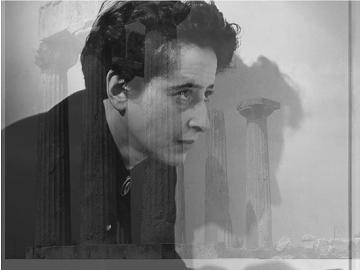
Thursday 17th and Friday 18th September 2015
Times below
Location: Gordon House 106 (or Gustave Tuck Lecture Theatre)
Register here.
Organisers: Miriam Leonard, Tim Beasley-Murray
One of the most original figures of the twentieth century, Hannah Arendt (1906-1975) still exerts a profound influence on political thinking today. From her discussion of action, to her critique of totalitarianism, from her declarations about "the banality of evil" to her reclamation of revolution, Arendt remains an essential point of reference for modern political thought. Her work continues to animate debates about democracy, about Israel and Palestine, about feminism and about the nature of political participation - she has even been the subject of a recent film. Yet, Arendt's critique of contemporary politics paradoxically found its inspiration in antiquity. Throughout her work, Arendt draws extensively not just on the writings of Plato and Aristotle but on a much broader conception of the political structures of Greece and Rome. In particular, Arendt turned to the Greek polis as "the space of men's free deeds and living words" to model an egalitarian, pluralist and agonistic politics. This immersion in antiquity was far from backward-looking; rather, Arendt discovered in these Classical civilizations a "forgotten treasure" which opens us on to a new future.
Arendt's thought raises questions about the centrality of Greco-Roman ideas to the constitution of modern politics. Does Arendt's investment in the Greek polis perpetuate a Eurocentric bias? Does her lack of attention to ancient slavery fundamentally undermine her notion of a free politics? Can Arendt move beyond the androcentrism which was constitutive of ancient political organisations? Arendt's relationship to the ancients thus opens up a debate about the complicity between a conception of Western civilization and the contemporary idea of politics.
This conference brings together Classicists, Political Theorists and Arendt scholars to look both at the impact of antiquity on her work and the potential for Arendt to open new avenues for studying the ancient world. The significance of antiquity to Arendt's thought has always been recognized, but its implications for continuing debates in modern political theory have yet to be fully investigated. Conversely, Classicists have become increasingly interested in the legacy of ancient political thought in the modern world but have yet to explore Arendt's writings in any detail. This conference will provide a uniquely interdisciplinary forum for exploring the relationship between ancient and modern politics.
Speakers:
Andrew Benjamin, Monash University
Adriana Cavarero, University of Verona
Joy Connolly, New York University
Katherine Harloe, Reading University
Bonnie Honig, Brown University
Frisbee Sheffield, Cambridge University
Dana Villa, University of Notre Dame
Programme and registration information will be available in June.
For more information, please contact: m.leonard@ucl.ac.uk
We gratefully acknowledge the support of the UCL Centre for Research on the Dynamics of Civilisation (CREDOC), the UCL European Institute and the A.G. Leventis Foundation.
Programme:
17September 2015
2pm: Registration and Welcome
2:30-3:30 Joy Connolly (NYU) 'Purposive Conservation: Arendtian practices of reading'
3:30-4:30 Katherine Harloe (Reading) 'Arendt and the Quarrel of Ancient and Modern'
4:30-5:15 Tea/Coffee
5:15-6:15 Bonnie Honig (Brown) 'Hannah Arendt and the Lost Sabbath: Ancient Practices in Modern Perspective in The Human Condition'
6:30-7:45 Reception in the Flaxman Gallery
18 September 2015
10:30-11:30 Dana Villa (Notre Dame) 'Arendt and Pericles'
11:30-12:30 Frisbee Sheffield (Cambridge) 'Arendt on Plato, Aristotle, and Politics'
12:30-2:00 Lunch (for speakers)
2:00-3:00 Andrew Benjamin (Monash/Kingston) 'The Problem of Authority in Arendt and Aristotle'
3:00-4:00 Adriana Cavarero (Verona) 'Arendt and the Socrates paradigm'
4:00 Tea/Coffee
4:30-5:30 Roundtable and Closing Discussion: John Ackerman (Northwestern) and Kevin Inston (UCL)
Inequality, Scale, and Civilisation
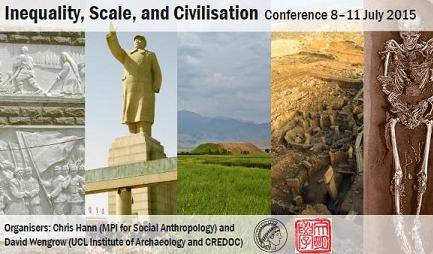
Date: 8-11 July 2015
Click here for more information
Civilisation and Hierarchy: encompassment revisited
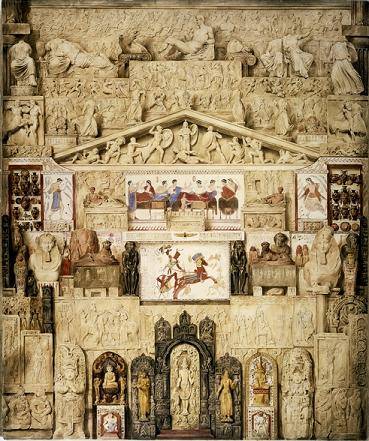
Date: 3 July 2015
Time: 10 a.m. -7 p.m.
Location: Seminar room 209, Institute of Archaeology 31-34 Gordon Square, London WC1
All are welcome. No registration is required.
From the ritual knowledge and age-grades of the Hadza, the Big Men of Melanesia, the chiefs engaging in the Kula, to Indian rulers and Brahmins, Chinese emperors and their ritual experts, including lay preachers and their texts, to the civilisation of individual and popular self-realisation as meritocratic and market-led, it is evident that hierarchy and civilisation are one and the same. But the nature, rake and ranking of hierarchy, the extent of exclusions from realising the highest achievements in it, are varied. Anthropological perspectives have often associated cosmology and hierarchy in varied forms and in this workshop we will address how these approaches expand our comparative understanding of civilisations.
Chaired by Mike Rowlands and Stephan Feuchtwang
A UCL Centre for Research on the Dynamics of Civilisation workshop
Programme
10-10.30 Mike Rowlands and Stephan Feuchtwang introduction
RESPONSES AND FURTHER THOUGHTS
Encompassment without hierarchy
10.30 - 11.15 Harry Walker
11.15 -11.30 coffee
11.30 -12.15 Jerome Lewis
Encompassment with hierarchy
12.15 - 1.00 Jason Hickel
Lunch 1.00- 2.30
2.30 - 3.15 Tom Boylston
3.15 - 4.00 Beverley Butler
Coffee/tea 4.00 - 4.15
4.15 - 5.00 Chris Pinney
5.00 - 5.45 Maurice Bloch
5.45 - 7.00 David Wengrow and then general discussion
Dinner
Civilised Bodies? (supported by CREDOC)
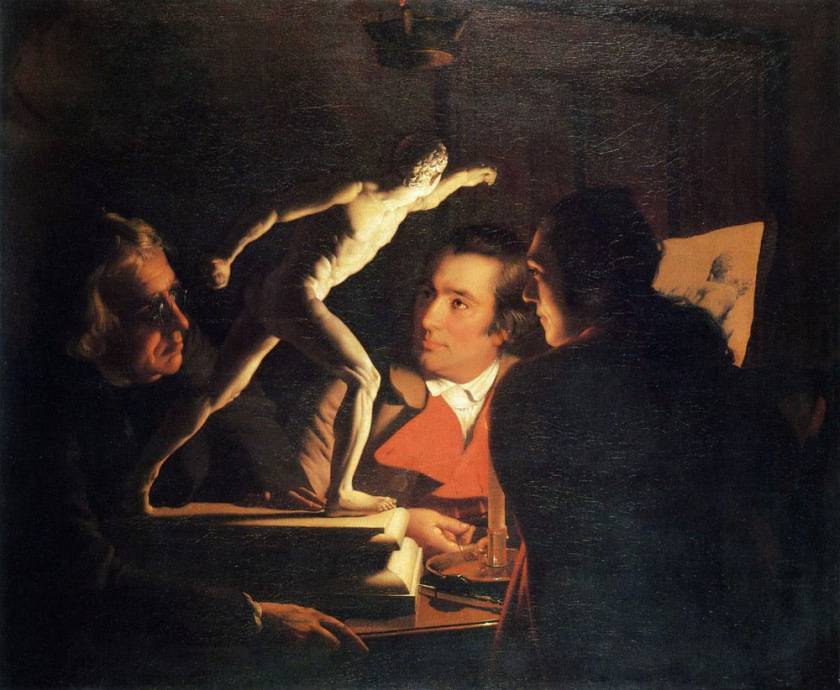
Friday 26th June 2015
Time: 9.30 - 6.30 p.m.
Location: Gordon House 106
Register here.
Contact Alexander Wragge-Morley for further information.
Since antiquity, classical sculpture has served to reflect and define the forms of embodiment associated with civilisation. Beginning with the Renaissance, moreover, classical sculpture has been continually re-appropriated in the service of new ideals of civilisation, in fields as diverse as art and medicine, and in political regimes as dissimilar as 18th-century Britain and Nazi Germany.
Thus classical sculpture has been a key theme in an incredibly wide range of scholarship dealing with the idea of civilisation. Scholars of 18th-century Britain such as PJ Ayers, for example, have identified the crucial role of classical sculpture in shaping political culture.
Meanwhile those in film studies, such as Michael Mackenzie, have discussed the striking role of classical sculpture in the films of Leni Riefenstahl. But what is it exactly that has defined Ancient sculpture as the embodiment of civilisation?
Today classical sculpture is commonly seen as an expression of civilised forms of embodiment. Equally, classical sculpture is still taken to embody the roots of western civilisation, as seen in the heated debate about the Elgin marbles. This one-day interdisciplinary workshop brings scholars from a wide range of fields to discuss and critique the role of ancient sculpture in embodying civilisation.
Programme:
9.30 - Registration and Coffee
10.00 - Welcome and Introduction
Julietta Steinhauer & Alexander Wragge-Morley Department of History, University College London
10.30 - Style as Subject Matter: the Civilisation of Classical Art Robin Osborne Faculty of Classics & King's College, University of Cambridge
11.30 - Civilised Values and the Broken Body Ellen Adams Department of Classics, King's College London
12.30-13.30 - Lunch
13.30 - Three Men and a Gladiator: A Perspective on What Could be Learned from Drawing after the Antique in the 18th Century.
Matthew Craske
Department of History, Philosophy and Religion, Oxford Brookes University
14.30 - Sculpture as Sculpture: Looking at Classical Sculpture from a Contemporary Perspective.
Paul Lewthwaite
Cranleigh School, Fellow of the Royal British Society of Sculptors
15.30-16.00 - Coffee
16.00 - A Sledgehammer to Civilization: Classical Bodies and Acts of
Violence in 20th-Century Italian Art and Beyond.
Jessica Hughes
Faculty of Arts - Classical Studies, The Open University
17.00 - Roundtable Discussion
17.45 - Drinks Reception
'Antiquity' and the dynamics of civilization
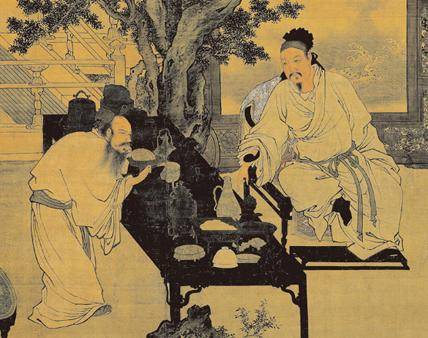
Friday 27th March 2015
Time: 1.30-6pm
Location: Pearson G22 Lecture Theatre, UCL followed by a reception in Gordon House 106
Ancient history and ancient civilization enjoy an ambiguous status in modern western thought. On the one hand, the very roots of modern civilization are thought to lie in antiquity: Mesopotamia and Egypt, along with China, have traditionally been regarded as the earliest regions to produce cultures complex enough to merit the label 'civilization', while Greece and Rome have long been credited with laying the foundations of modern European civilization in particular. On the other hand, antiquity is also widely seen as fundamentally different from the modern world: in the popular imagination, it is a 'lost world' of 'mysteries' and exotic practices, while among academic historians it is bracketed with the Middle Ages as a pre-modern, pre-industrial world with social, economic and political structures and systems of values different from our own. Both of these contrasting perspectives are encouraged by the label 'antiquity', which suggests extreme remoteness in time but also hints at an age of origins.
The workshop addresses the question whether it is meaningful to define all human history before AD 500 (or indeed AD 1500 outside Europe), as 'ancient' and to treat this span of time either as the first stage in a largely linear development towards contemporary civilization or as a phase of development separated from modernity by a Great Transformation. Do 'ancient' societies have features which they share with one another but which distinguish them from modern (or medieval) society - as for example Max Weber, Karl Polanyi and Moses Finley argued with regard to social and economic structures? Or do the dynamics of civilization within 'antiquity' result in societies and cultures that differ structurally from one another but have in some cases important features in common with developments in the medieval and modern world? And how does 'antiquity' in modern western history compare to its equivalent in the history of other regions, such as China?
Programme:
1.30-1.40 Introduction by Hans van Wees (UCL)
1.40-2.30 Rethinking Middle Eastern antiquity by Eleanor Robson (UCL)
2.30-3.20 Antiquity and the Middle Ages by David d'Avray (UCL)
3.20-3.50 Tea/coffee break in Pearson G23
3.50-4.40 Antiquity and China by Wang Mingming (Peking)
4.40-5.00 Response by Ian Morris (Stanford)
5.00-6.00 General discussion
6.00-7.00 Drinks reception in Gordon House 106
All are welcome. The event is free and no registration is required.
The shape of ancient civilisation
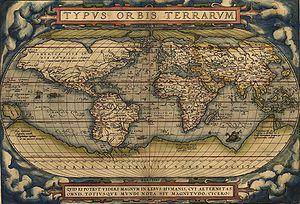
Ian Morris (Professor of Classics, Stanford University)
Thursday 26th March 2015
Time: 6pm to 7.45pm
Location: Institute of Archaeology Lecture Theatre;
followed by a reception from 7.45-8.30pm in the Anthropology Common Room G11
Gower Street, London WC1E 6BT
Since modern scholarship began in the eighteenth century, it has focused not on 'ancient civilisation' but 'ancient civilisations'. Researchers divided the world up into Classics, Egyptology, Assyriology, Indology, Sinology and a host of other regional specialities. Focusing on the details of particular languages and cultural traditions, they emphasized the uniqueness of ancient civilisations rather than global patterns. In this lecture, Ian Morris argues that we are now in a position to tell a coherent story about ancient civilisation at the global level, tracing a ten-thousand-year tale of rising scale, development, peace, and prosperity--to be weighed against a parallel tale of rising inequality. Global antiquity culminated in a massive series of crises that rocked the Old World and then the New. Until we can make sense of ancient civilisation at a global scale, we cannot hope to make sense of the human story as a whole.
Respondents:
Kevin Macdonald (UCL African Archaeology)
Corinna Riva (UCL Mediterranean Archaeology)
All are welcome. The event is free and no registration is required.
Civilisation and its Critiques: An Art-Historical Perspective
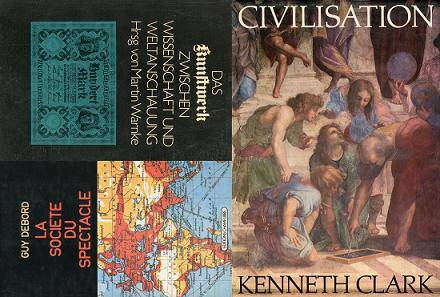
Friday 13th March 2015
Time: 4pm to 6.30pm
Location: Chandler G10
2 Wakefield Street, London WC1N 1PF
In 1969, Kenneth Clark's BBC series Civilisation: A Personal View presented a very traditional British notion of civilisation to a wide and international public. It was sovereign, patrician and western, and it was framed around great works of art. From that point on, Clark's series became a touchstone for critiques of this limited conception of both civilisation and art, from John Berger's counter-series Ways of Seeing to other accounts that took up perspectives of class, gender and colonialism.
The BBC's announcement of plans for a new series offers an opportunity to reconsider this crucial moment and look afresh at the unstable and geographically diverse way these critiques were negotiated within the discipline of Art History. Similar critiques were developed in other countries, but against the background of very different institutional, generational, historical and discursive conditions. Speakers will give short papers on developments in the UK, France and Germany.
Speakers:
Hannah Feldman (Northwestern University, Art History)
Adrian Rifkin (Goldsmiths, Dept of Art)
Frederic Schwartz (UCL, History of Art)
All are welcome. The event is free and no registration is required.
Civilisation and its critiques: Perspectives from Archaeology
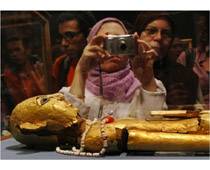
Time: 4pm Monday 8th December 2014
Location: UCL Institute of Archaeology, room 612
31-34 Gordon Square, London WC1H 0PY
More information here.
Mike Rowlands, Andrew Bevan, Dorian Fuller & David Wengrow will give the final seminar in the Term I Institute of Archaeology Research Seminar series highlighting current research at the Institute on 8 December.
Abstract
Gordon Childe's definition of civilisation based on a list of cultural traits (urbanism, trade, literacy, early states, monumental art etc.) has been the most influential archaeological contribution to the debate. What is present archaeological thinking on its utility? Perhaps now used more for the focus on particular aspects rather than 'civilisation' per se - the implications are critical.
A CREDOC meeting will be organised at the research seminar to debate current archaeological thinking on the utility of the concept of civlisation from different perspectives (eg scale, stage, transformation, transmission etc.).
The UCL Centre for Research on the Dynamics of Civilisation (CREDOC) seeks to understand the social phenomenon of 'civilisation' and to challenge the role it is being made to play in the modern world.
CIVILISATION & ITS CRITIQUES: Horizons of History: Framing Religion and Politics in India and Beyond
A workshop with Wendy Doniger on the politics of the longue durée and other temporal frames.

Friday 14th November 2014
Time: 2-5pm
Location: Department of Anthropology Common Room, 14 Taviton Street, London WC1H 0BW
followed by a reception from 5-6pm
ALL WELCOME.
University College London, Gower St, London WC1H 0PY
Wendy Doniger's lecture on 13th November will examine different 'civilization[al]' possibilities that have co-existed in India since the 6th century BCE. The lecture proposes an encounter between this longue durée and the short durée of a new Hinduism that imagines itself to be ageless. The accepted response up until now has been to describe these encounters as the difference between history and historicity or historical consciousness.
We are used to thinking about the politics of spatial framings and historiographical metaphors (short-term and long-term histories; 'micro' versus 'oceanic'), but what about temporal horizons? We are all aware of the dangers of 'foundational' approaches. Yet how might we reconcile them with arguments (such as that of Dipesh Chakrabarty) about 'geological' time in relation to narratives of human intervention in climate change and the predicament of species survival?
Such wide horizons also raise the question of what is sometimes called the 'ontological turn': how can 'local' histories be reconciled with the wider frame of longer term histories? What are the modalities through which the political claims of short and longue dureés can be best evaluated?
The workshop will pursue these issues through the interventions of an invited group of panellists including:
| C.A. Bayly | (Cambridge) |
| Jo Cook | (UCL) |
| Faisal Devji | (Oxford) |
| Kevin Fogg | (Oxford) |
| Dave Rampton | (LSE) |
| Nira Wickramasinghe | (Leiden) |
CREDOC Lecture on India: Wendy Doniger: Hinduism: Civilisations in Contest and Conflict
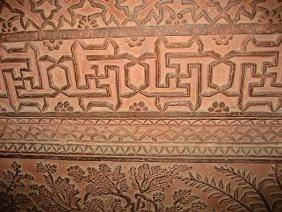
Time: 6.30-8pmThursday 13th November 2014
Location: Gordon Street (25) E28 Harrie Massey Lecture Theatre
Register here.
followed by a reception from 8-9pm, Location: Gordon House 106
University College London, Gower St, London WC1H 0PY
Since the 6th century BCE, Hinduism has held in creative suspension two movements so different as to merit the title of separate civilisations: one is the dominant strain of ritual, of celebration of life, of family, of children, of sexuality, of food and poetry and sculpture and the worship of many gods; and the other is the strain of philosophy, of renunciation, of the drive to become released from the cycle of rebirth, through denial of the senses, of family life, of children. These two paths lived peacefully side by side, as available options for most Hindus, until the philosophical strain developed into a new form of Hinduism under colonization in the nineteenth century; and now, in a new, Fundamentalist avatar, it has introduced an unprecedented form of repression that threatens freedom of speech in India today.
Wendy Doniger
Mircea Eliade Distinguished Service Professor of the History of Religions, Divinity School, University of Chicago. Author of over thirty books, The Hindus: An Alternative History (2009) and On Hinduism (2013).
On the recent censorship of her publications in India, see an article by John Williams in the New York Times, 16 February 2014 - click here to see: http://www.nytimes.com/2014/02/17/books/author-resigned-to-ill-fate-of-book.html?_r=2
and Doniger's own comment piece in The New York Review of Books, 8 May 2014, click here to see: http://www.nybooks.com/articles/archives/2014/may/08/india-censorship-batra-brigade/?insrc=whc
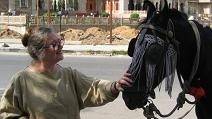 | 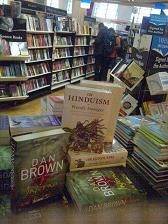 |
CIVILISATION AND ITS CRITIQUES: CREDOC Seminar 1: Civilisation in Political Thought
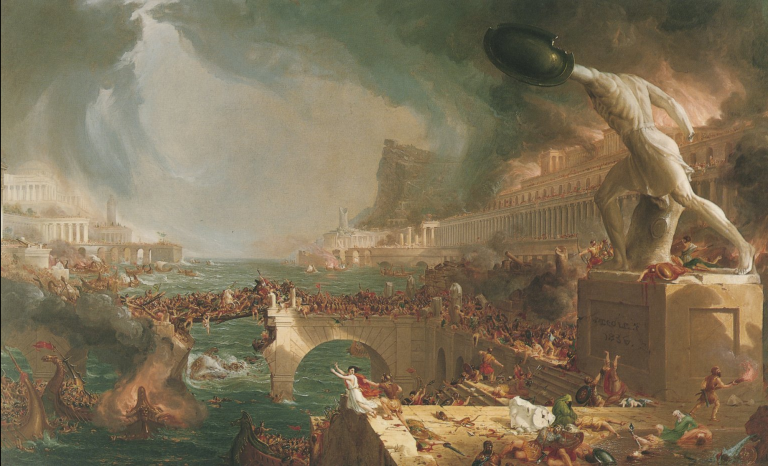
Thursday 23th October 2014
Time: 5.30-7pm
Location: UCL Institute of Archaeology, room 612
31-34 Gordon Square, London WC1H 0PY
7-8pm Reception in Archaeology Senior Common Room.
The concept of civilisation looms large in current debates about the constitution of Europe, the authority of religious traditions, and national as well as supra-national identity. For a long time, it has informed definitions of enlightenment and backwardness, progress and decline, the West and its many Others.
The Centre for Research on the Dynamics of Civilisation (CREDOC) seeks to place a fresh critical focus on the concept of civilisation through a series of seminars running across the academic year. The first seminar re-examines the place of the concept in the history of modern political thought. A group of specialists will discuss its significance in the works of Rousseau and Nietzsche and consider how 'civilisation' has been appropriated and challenged beyond the West.
SPEAKERS
Christopher Brooke (Politics and International Studies [POLIS], Cambridge)
Martin A. Ruehl (German Thought, Cambridge)
Faisal Devji (Modern South Asian History, Oxford)
CO-CHAIRS
Alexander Wragge-Morley (UCL, History)
Maria Wyke (UCL, Dept. of Greek & Latin)
All are welcome. Registration is not required. Open to the public.
A CREDOC Provocation: Civilisation and Language
Tuesday 17th June 2014
5.30-7pm, Archaeology 612, 31-34 Gordon Square
followed by a reception, 7-8pm in the Archaeology Common Room (609)
University College London, Gower St, London WC1H 0PY
Literacy and writing (when linked to urbanism, economic specialisation and bureaucracy) have long been considered hallmarks of civilisation. We propose in this 'provocation' to unravel the basis of that assumption. We will ask instead: How are claims to superiority made by giving authority to one language over others? How do speakers of languages come to regard their own and others as superior or inferior? How is superiority claimed through writing, language classifications, and ethnic or racial categories based on language exclusions? Language expansion and spread are the most often cited signifiers of the dynamics of civilisation. Contemporary notions of dysfunctional language acquisition and use are, on the other hand, imbued with ideas of civilisational deficiency. The CREDOC provocation will also explore alternative images of the relationship between communication and civilisation.
All are welcome. Registration is not required. Open to the public.
| SPEAKERS |
Stephen Colvin, Dept of Greek and Latin, UCL BSL-English interpretation |
Lecture: 'Big History'
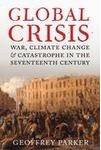
Monday 28th April
5pm J Z Young Lecture Theatre, G29 Anatomy
University College London, Gower St, London WC1H 0PY
| SPEAKER | RESPONDENT |
| Geoffrey Parker (Ohio State University), Author of 'How not to write a global history of the 17th century' | Jonathan Holmes (UCL, Geography) |
This lecture is run by the Centre for Early Modern Exchanges with the support of CREDOC
A CREDOC Provocation: Civilisation: Feasting and Drinking
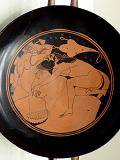 |  | 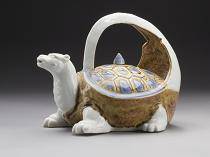 |
Tuesday 11th March 2014
6.30-8pm, Archaeology 612, 31-34 Gordon Square
Gower Street, London WC1E 6BT
Eating and drinking are frequently described as 'habits' or forms of etiquette indicating a sense of what it means to be civilised or uncivilised. The preparation and serving of food and drink figure prominently in Norbert Elias's understanding of civilisation as a process. Archaeologists have focused on the origins of food production and domestication. Anthropologists since Frazer's Golden Bough have focused on cooking, cuisine, feasting and sacrifice as a key to cultural comparison. Classicists have explored the centrality of the symposium to ancient Greek culture and self-identity. The seminar will consider how a cross-civilisational perspective might enhance our understanding of human habits of food production and consumption and the politics of drinking and feasting.
All are welcome. Registration is not required. Open to the public.
| CHAIR | SPEAKERS |
| Michael Rowlands, Material Culture Studies, UCL | Chris Carey, Greek and Latin, UCL Dorian Fuller, Archaeobotany, IOA Kaori O'Connor, Anthropology, UCL Sami Zubaida, Politics, Birkbeck |
THE CREDOC LAUNCH LECTURE: To learn from the ancestors or to borrow from the foreigners? China's self-identity as a modern civilisation
 |  |
Thursday 13th February 2014
6.30-8pm, Institute of Archaeology Lecture Theatre;
followed by a reception, 8-9pm, in the Department of Anthropology, Common Room,
Gower Street, London WC1E 6BT
The official launch lecture for the new Centre for Research on the Dynamics of Civilisation.
Within current Chinese intellectual and political debates about the future of 'civilisation(s)', the claim is made that China is a civilisation of five thousand years continuous duration. Concepts of the 'nation' and the 'state', once adapted from Western social and political thought, are being questioned and replaced by a Chinese idea of modern civilisation. Our guest speaker and his respondent will debate this Chinese interest in the future of 'civilisation(s)'.
All are welcome.
| OPENING ADDRESS | SPEAKERS | CHAIR |
David Price (Vice-Provost for Research) | Wang Mingming (Peking University); Stephan Feuchtwang (LSE) | Mike Rowlands (Dept. of Anthropology) |
Wang Mingming, Professor of Anthropology at Peking University, is author of many important anthropological and historical works, including such recent ones as The West as the Other (2007), Empire and Local Worlds (2009), Biography and Anthropology (2010), and Transcending the New Warring States (2012). He founded the journal Chinese Review of Anthropology in 2006. He has been Secretary-General of the Chinese Anthropological Association and vice-president of the Chinese Association of Maritime History.
Stephan Feuchtwang, Emeritus Professor of Athropology at the London School of Economics, has a long and distinguished history of research into popular religion and politics in mainland China and Taiwan. His publications include The Anthropology of Religion,Charisma and Ghosts: Chinese Lessons for Adequate Theory (2010) and After the Event: The Transmission of Grievous Loss in Germany, China and Taiwan (2011). Recently he has been engaged in a project on the comparison of civilisations and empires.
The problem of progress: Life, humanity, civilisation
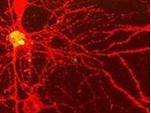 |  |
|
Tuesday 28th January 2014
5.30-7pm, 1.02 Lecture Theatre, Malet Place Engineering
University College London, Gower St, London WC1H 0PY
Investigation of civilisation as a concept and as a social phenomenon is still caught up in the problem of progress. Can we escape the damaging legacy of earlier centuries that set the primitive against the civilised and one civilisation above another in a hierarchy of moral, cultural, religious or racial superiority? Investigations into the origins of life and the emergence of humanity also confront the problem of progress. Developmental metaphors have often been used to describe major evolutionary transitions such as those from molecules to chromosomes, or from sound to language. How better can we measure chemical, biological and cultural complexity?
This roundtable Provocation brings together for the first time UCL's three Research Frontier groupings (Origins of Life, Human Evolution and Dynamics of Civilisation). It seeks to address provocatively some fundamental questions about life, humanity and civilisation, to provoke exchange across UCL, and to confront the problem of 'progress'. After preliminary reflection from the speakers, the discussion will be opened up to the audience.
This event is the first Provocation to be organised by CREDOC, in partnership with the Research Frontiers groupings Human Evolution and Origins of Life
| OPENING ADDRESS | SPEAKERS | CHAIR |
David Price (Vice-Provost for Research) | Nick Lane (Dept. of Genetics, Evolution and Environment); Mike Rowlands (Dept. of Anthropology); James Steele (Institute of Archaeology) | Maria Wyke (Dept. of Greek & Latin) |
YouTube Widget Placeholderhttps://youtu.be/voiH6EGG3sc
Dynamics of Civilisation along the Qara Dagh Range: Perspectives on the archaeology, history and palaeoenvironment of Iraqi Kurdistan
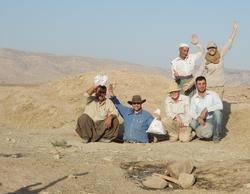
Monday 16th December 2013
2-7pm G6 Lecture Theatre, UCL Institute of Archaeology
31-34 Gordon Square, London WC1H 0PY
At a crossroads between the flood plain of southern Mesopotamia, the Assyrian heartland to the north and Western Iran, the province of Sulaymaniyah (Kurdish Autonomous Region of Iraq) constitutes one of the most fertile agricultural regions of the Middle East. Archaeological research in this important region was limited for much of the later twentieth century, owing to modern political circumstances.
This conference brings together a new generation of researchers, whose fieldwork is beginning to fill out this significant gap in the archaeological, historical, and environmental record. Presentations will span the emergence of village life in the Neolithic period through to the imperial landscapes of the Iron Age, and the meeting will highlight a range of projects based at UCL, alongside those of other leading European universities, including new excavations, surveys, and reconstructions of past environments.
All welcome. No need to register.
For maps and directions see www.ucl.ac.uk/archaeology/contact
For further enquiries contact David Kertai
Organised by Mark Altaweel, David Kertai, Karen Radner and David Wengrow as part of UCL's Grand Challenge of Intercultural Interaction, with additional funding provided by the London Centre for the Ancient Near East and a Rubicon Grant of The Netherlands Organisation for Scientific Research (NWO).
| SPEAKERS | |
| Dorian Q Fuller (UCL) Jarmo revisited: subsistence and the emergence of village farming in the eastern Fertile Crescent | Simone Mühl (LMU Munich) The Shahrizor Survey Project: exploring Wadi Shamlu in 2012 and 2013 |
| Olivier Nieuwenhuyse (Leiden) Later prehistory in the Shahrizor: a view from Begum | Aline Tenu (Maison Archéologie & Ethnologie René-Ginouvès, Paris) Kunara, a small town in the Upper Tanjaro Valley |
| David Wengrow (UCL) Gurga Ciya and Tepe Marani: new investigations into the later prehistory of the Shahrizor Plain | Mark Altaweel (UCL) The search for hidden landscapes in the Shahrizor |
 Close
Close

